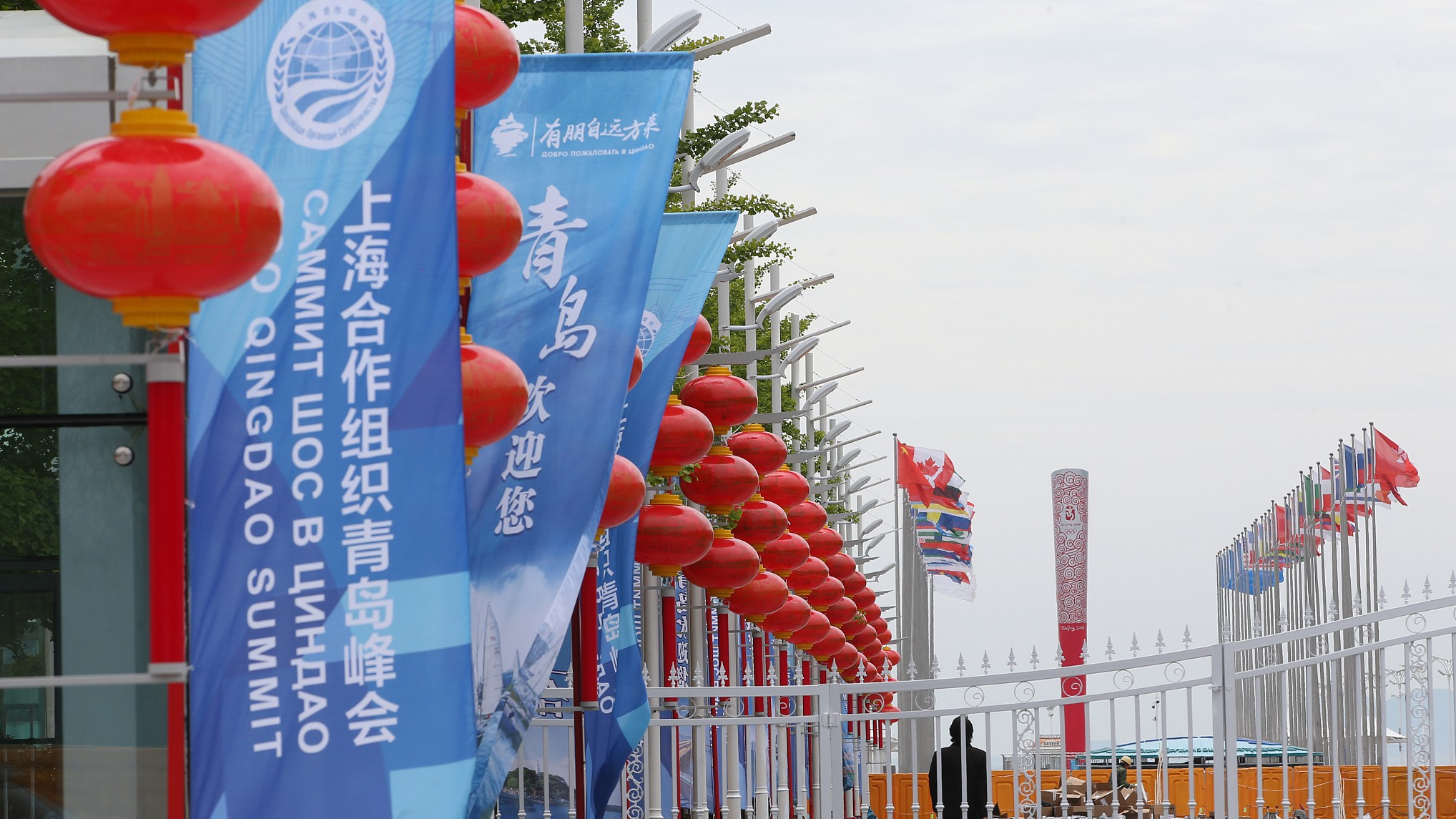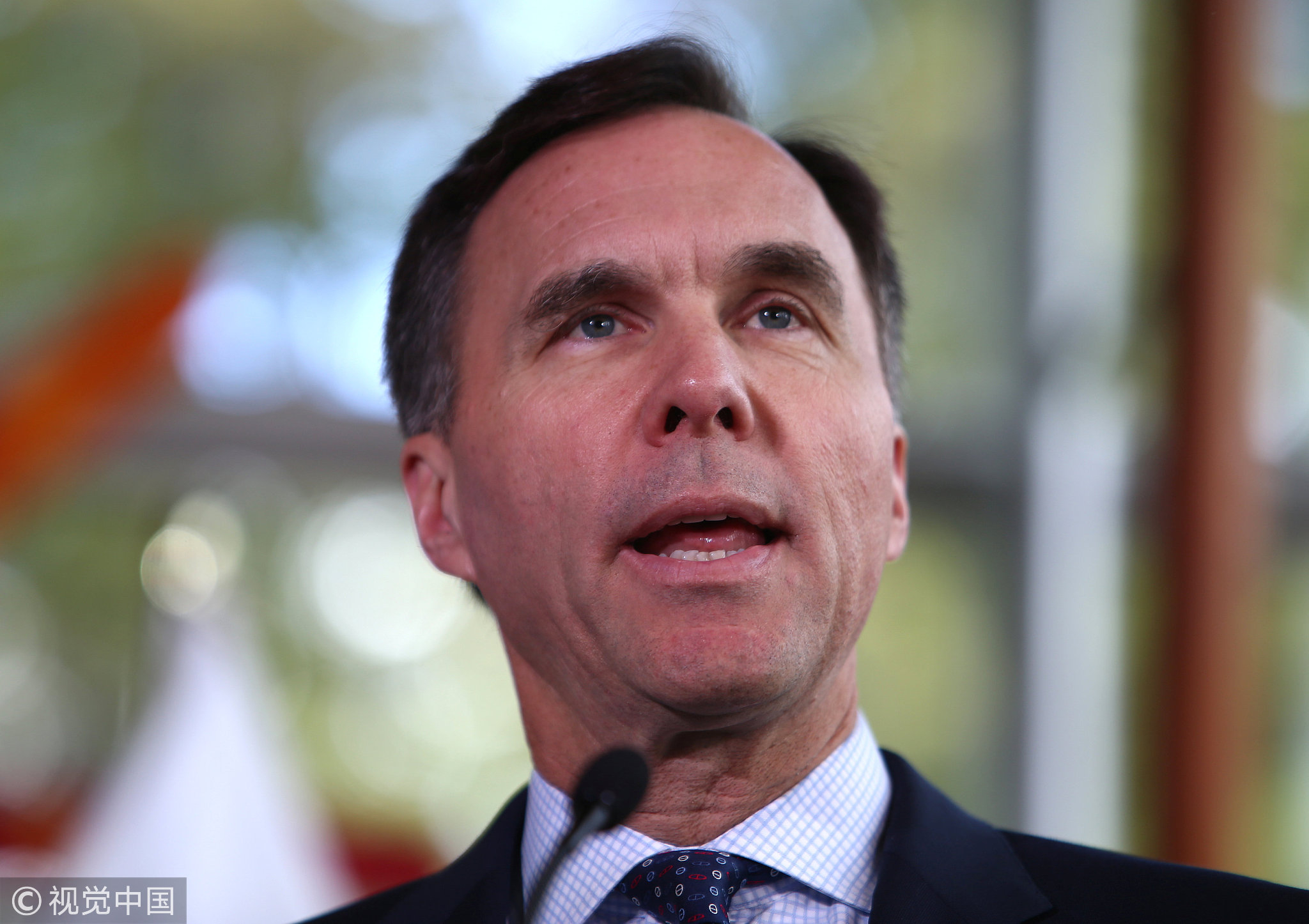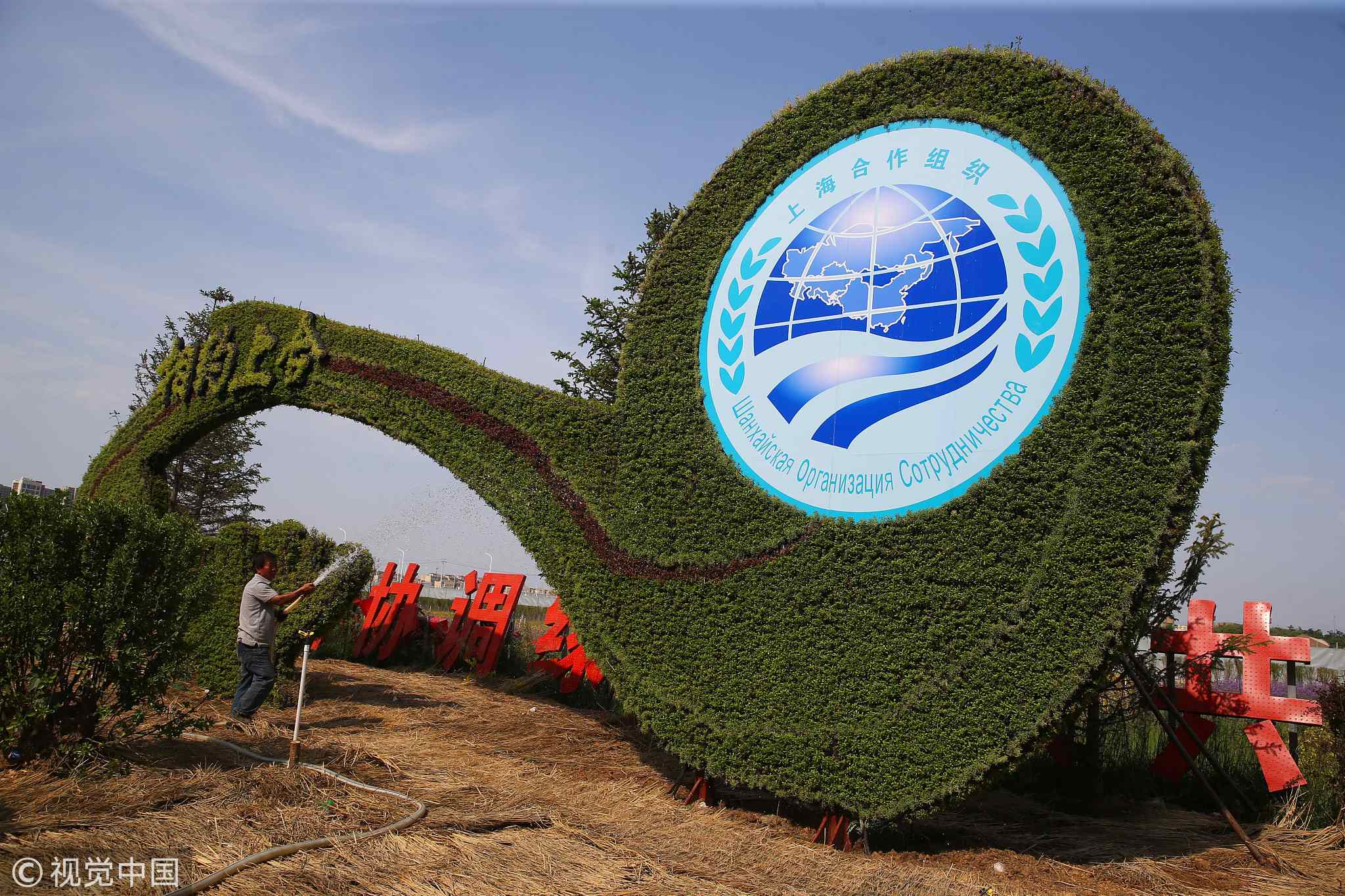
Opinions
15:00, 08-Jun-2018
Opinion: What an SCO membership means for regional, bilateral alliances
Sardar Taimoor Abbasi

Editor's note: Sardar Taimoor Abbasi is a former investment banker with expertise in oil and gas, and a senior strategist with focus on global finance and its geopolitical impact. The article reflects the author's opinion, and not necessarily the views of CGTN.
In a press conference standing next to French President Emmanuel Macron, US President Donald Trump said that over an 18-year period the US spent about seven trillion US dollars in wars in the Middle East and got “absolutely nothing to show for it.”
In about the same 18-year period, China’s GDP has grown from 1.2 trillion US dollars in 2000 to 12.9 trillion US dollars in 2017.

Canada's Minister of Finance Bill Morneau holds a news conference after the G7 Finance Ministers Summit in Whistler, British Columbia, Canada, June 2, 2018./VCG Photo
Canada's Minister of Finance Bill Morneau holds a news conference after the G7 Finance Ministers Summit in Whistler, British Columbia, Canada, June 2, 2018./VCG Photo
Most economic studies and pundits forecast that by 2030 China would be the number one economy in the world. This would translate into continued advance in its global economic and political influence along with its responsibility to make the world a better place. China would remarkably have achieved this feat without instigating wars in the world or harboring ambitions of world domination.
In line with this forward-thinking philosophy of shared growth, the Shanghai Cooperation Organization (SCO) was established in 2001. With key objectives to boost relations among member states; stimulate collaboration in domains of political affairs, trade, economics, scientific, cultural, educational, energy, transportation, tourism, and environmental protection; preserve regional peace, security, and stability; and construct a representative, just and international political and economic order, establishing members – China, Kazakhstan, Kyrgyzstan, Russia, and Tajikistan – have realized the benefits of these objectives in various fields.
The United States' response to the rise of China’s political and economic influence has mostly been aggressive and manifested itself in policies like “rebalancing” and “Indo-Pacific Strategy”. The insular and America First policies adopted by the US might serve the short-term purpose of lifting its economy but has started to impact its standing on the global stage as a dependable long-term partner.
The US recently imposed import tariffs on steel and aluminum from Canada, Mexico and the EU. Canadian Prime Minister Justin Trudeau eloquently reminded the US that they have been allies for over 150 years and imposing these penalties under the pretext of national security is a policy that just lacks common sense.
This pattern plays out repeatedly in such examples as pulling out of the Trans-Pacific Partnership, a deal that was essential to President Barack Obama’s Asia trade policy; prospects of a looming trade war with China; unilaterally scrapping the Iran nuclear deal that was negotiated by five major world powers plus Germany and the EU.
Qatar, a major ally that hosts the US Central command, is facing unsubstantiated claims of terror-related financing. Pakistan, termed a major non-NATO ally, is experiencing déjà vu of disinterest and excessive demands similar to ones it faced after being an ally against the Soviet invasion of Afghanistan.

Qingdao has prepared well for the coming SCO Summit. Qingdao. /VCG Photo
Qingdao has prepared well for the coming SCO Summit. Qingdao. /VCG Photo
In this vacuum of distrust, the SCO provides an ideal confidence-building platform to the alliance's members. The involvement of all member states in its activities is mandatory so dialogue is inevitable.
The effectiveness of the SCO would be further established when two of its newest members, India and Pakistan, would use this platform to work together towards the objective of removing mistrust and initiate dialogue. What started against a multilateral backdrop could eventually pave the path for more bilateral collaboration.
Both the countries are now also part of the Regional Anti-Terrorism Structure under the SCO. Under this framework member states need to agree to exchange information and fight terrorism under its provisions. China has also proposed that a treaty be signed by members for legally dealing with issues such as separatism, extremism, and cyber security. Dialogue needs to be the only option to resolve conflicts as it has been proven that there are no military solutions. There are the United Nations resolutions on the core issue of Kashmir that can form the basis of this dialogue. Given the history between the two neighbors it would be a challenging task, but by virtue of SCO membership all necessary mechanisms are in place for them to take initiative.
India and the United states have come a long way in aligning their strategic vision of Indo Pacific with joint military exercises and weapon sales. At the Shangri-La Dialogue, Prime Minister Narendra Modi has given a balanced speech. This could be a sign that political rhetoric for domestic consumption has given way to a more practical thinking. His recent trips to China and Russia seem to have some impact. Observers would curiously watch India’s position, as there is an inherent contradiction in adhering to the principal objectives of the SCO and an organized role of an Indo-Pacific Strategy affiliate. India would not be able to play both the roles for long; it would be a foreign policy challenge to balance these two acts.
India has an opportunity for tremendous economic gains being part of the SCO, an alliance for the future. Within its framework there is a capacity to resolve difficult border issues and access to economic corridors of the Belt and Road Initiative connecting more than 60 countries in Asia, Europe and Africa.

SITEMAP
Copyright © 2018 CGTN. Beijing ICP prepared NO.16065310-3
Copyright © 2018 CGTN. Beijing ICP prepared NO.16065310-3